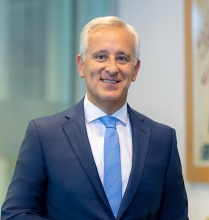International Arbitration Newsletter - September 2020 | Regional Overview: Asia Pacific
The most relevant Asia Pacific updates from the global International Arbitration and ADR practice group at Garrigues.
AUSTRALIA
Protracted Timor Sea arbitration settled
In early August an US$ 45 million ICC arbitration relating to the termination of a production-sharing contract (PSC) between an Australian joint venture consortium and East Timor’s National Petroleum and Minerals Authority (ANPM) was settled. The Australian joint venture consortium is made up of Oilex, Australia’s Pan Pacific Petroleum, Japan Energy E&P and Indian companies Gujarat State Petroleum Corporation, Videocon and Bharat Petro Resources.
The PSC was concluded for the development of an oil block in Joint Petroleum Development Area (JPDA), which was established under the 2002 Timor Sea Treaty and was supervised by ANPM on behalf of the interests of East Timor and Australia.
In 2013 in response to the uncertainty caused by East Timor´s decision to commence arbitration against Australia, which would invalidate a treaty governing the activities in the Timor Sea, the Australian Consortium sought to terminate the PSC on the basis of mutual consent and without liquidated damages.
In 2015 ANPM terminated the Contract and claimed compensation of US$ 17 million, since the Australian Consortium failed to satisfy the commitments on minimum exploration work. Failing to reach a settlement agreement, ANPM initiated arbitration in 2017. Afterwards, ANPM increased the compensation to US$ 22 million. In 2019, the Australian Consortium filed a counterclaim claiming for US$ 23 million plus interest for ANPM wrongful termination of the PSC.
CHINA
Beijing-based pharmaceuticals group faces ICC claim
Los Angeles biomedical company Puma Biotechnology has commenced an ICC arbitration against CANbridge Ltd., a pharmaceutical group based in Beijing, for a license agreement valued at US$ 195 million aimed at promoting a breast cancer drug in the Greater China region.
The dispute relates to a drug called neratinib, developed by Puma seeking commercialization for the treatment of cervical cancer. Puma obtained a global license from Pfizer Inc for the drug sold under the Nerlynx brand and entered into several exclusive sublicense agreements to acquire regulatory approval for Nerlynx in various jurisdictions for its commercialization outside the United States, including the agreement with CANbridge under which the sublicense scope covers the mainland China, Hong Kong SAR, Macao SAR and Taiwan region.
In its arbitration claim, Puma alleges that CANbridge has breached or is expected to have breached the agreement between the parties, while its conduct constitutes grounds for termination of the agreement. Puma further alleges that CANbridge has failed to make reasonable efforts as required to commercialize Nerlynx. In addition, CANbridge must obtain its consent before transferring the agreement to a third party according to Puma.
SOUTH KOREA
South Korea loses bridge dispute
Macquarie Korea Infrastructure Fund announced that an ICC award had been issued in favour of its subsidiary Incheon Bridge Co (IBC) against the Korean Ministry of Land, Infrastructure and Transport.
IBC, possessing a 30-year concession and operation right for the Incheon Bridge, is striving for two other bridge businesses in Korea, one of which is a construction project implemented in Incheon Metropolitan City.
The Ministry reported that in 2017 it had issued an interpretation of the non-compete clause in the concession, stating that the liability of compensation can only be triggered when a new competitive road was constructed and operated, then the traffic volume of the Incheon Bridge and the resulting toll revenue was reduced to less than 70% in the year prior to the commissioning of the new road. The compensation under such circumstance was limited to the gap between the amount of traffic and the 70% standard.
In 2018, the IBC commenced its ICC arbitration to verify the interpretation of the non-competition clause. In the final award the tribunal found that the Ministry’s interpretation was groundless and that if the new competitive road reduced traffic on the Inchon Bridge by 5% or more, the state is obligated to pay compensation. Additionally, the Ministry is obliged to compensate the losses IBC suffered in the project due to the non-competition clause from the operation date to the end of the concession period (i.e. 2039).
PHILIPPINES
Philippine company loses mining dispute
Mt Labo Exploration and Development Corporation has received a favourable final award in a dispute with its Philippine joint venture partner, Galeo Equipment Corporation. Mt Labo is a subsidiary of Australian mining company, RTG Minings holding 40% interest.
The copper-gold project involved in the dispute was developed by a joint venture incorporated by Mt Labo and Galeo. The project is located in Luzon and had been granted a mining permit. It was estimated that the project had a net present value of US$ 463 million.
In 2016, due to political issues, Mt Labo and Galeo signed a settlement agreement which would potentially entitle Galeo to a 42% interest in Mt Labo. Then RTG announced at the end of 2016 that Galeo had backtracked and again tried to block progress on the project. RTG confirmed in 2017 that its subsidiary revoked the settlement agreement and initiated arbitration proceedings as a result of Galeo’s non-performance.
RTG stated that the tribunal had justified the termination of the joint venture agreement as well as the withdrawal of the settlement by Mt Labo, which means Galeo was not entitled to a 42% stake in Mt Labo. As informed by RTG, the practical effect of the final award is that Galeo is not a shareholder of Mt Labo and the joint venture has been terminated. Mt Labo would be the sole owner of the venture without paying any compensation for the increase of shareholding.
Contacts



-
+52 55 1102 3570
-
+52 81 8153 3900
-
+52 442 296 6400
-
+57 601 326 69 99


